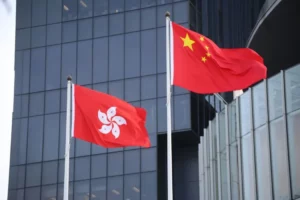Hong Kong is set to enhance its national security framework with new legislation, expanding on the stringent measures introduced by Beijing in 2020.
This move, primarily aimed at filling legal gaps, particularly targets “soft resistance” and seeks stricter internet regulation, a response to the pro-democracy protests of 2019.
Article 23 will broaden laws to combat threats such as treason, sabotage, sedition, espionage, and unauthorized dissemination of state secrets.
It also plans to increase oversight of foreign political entities within the city.
This effort to enact Article 23 isn’t novel; a similar proposal faced immense public backlash in 2003, leading to its withdrawal.

That legislation, though significant, left certain offenses unaddressed, an oversight the current administration seeks to rectify with local laws.
Concerns are mounting over the proposal’s vague definitions of offenses and the potential repercussions for Hong Kong’s liberties.
The draft law highlights crimes like using technology to jeopardize national security and broadens what constitutes state secrets.
This includes economic and social development aspects crucial to Hong Kong.
This pivotal juncture calls for vigilant observation from both local and international observers as it unfolds.

